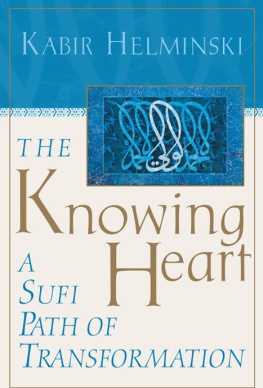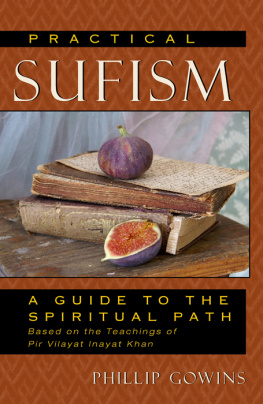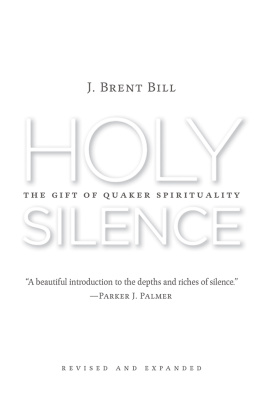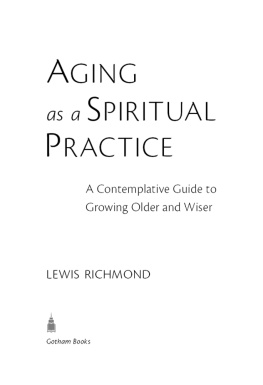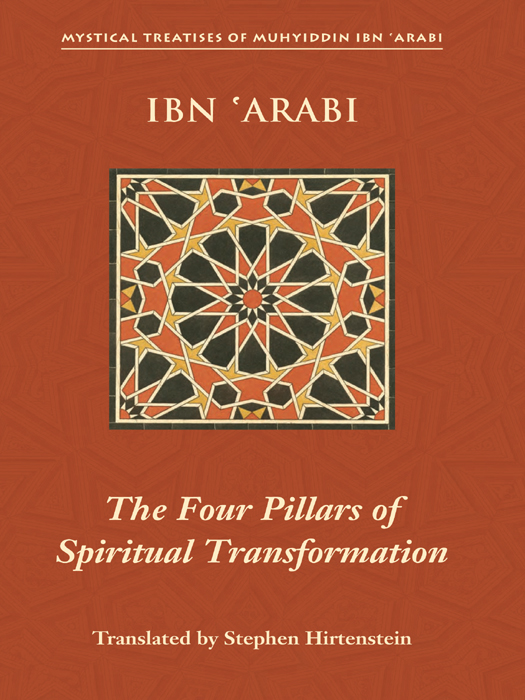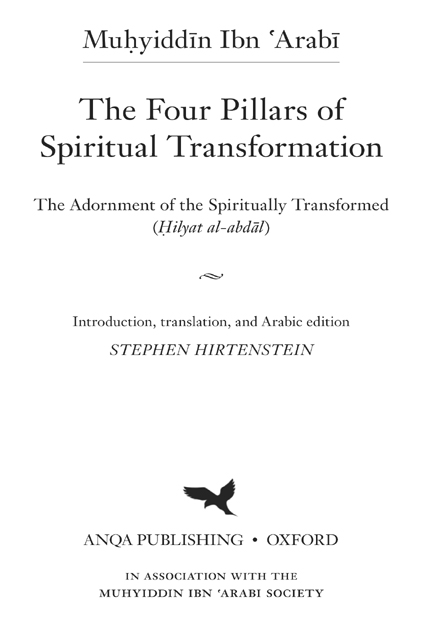I owe special thanks to all the members and fellows of the Muhyiddin Ibn Arabi Society, especially those involved directly or indirectly in the Archiving Project, without whose generous support this would never have been completed. In addition, I am as ever extremely grateful to the staff in various Turkish manuscript libraries, in particular the director of the Bolge Library in Konya, Bekir ahin, whose passion for preserving precious manuscripts and their contents knows no bounds. Thanks also to Richard and Karen Holding, Martin Notcutt and Deborah Freeman, who all participated in a dramatic rescue mission, to Nermine Hanno for inestimable help with the Arabic text, to Suha Taji-Farouki for her insightful comments and suggestions on the text and translation, and to Michael Tiernan for his unobtrusively efficient copyediting and typesetting skills.
INTRODUCTION
The way of the Lord and the way of the soul
The wise make spiritual discipline, abandonment of this world and other such things the primary condition for their thoughts to be free enough to receive spiritual matters. For spiritual things do not impart their effects unless the place [of reception] is emptied, made ready and turned towards their standpoint of view. Those who know God know that the relationship of all things to God is [but] one single relation. Thus they witness Him in everything and nothing veils them from Him.
When Ibn Arab began to devote himself in earnest to the spiritual Way in the year 580/1184, he frequented several different spiritual masters in Seville. Amongst them were a number who had been disciples of Ibn Mujhid, one of the most famous Sufis of the day. Ibn Mujhids creed was based upon the following hadth of the Prophet: Reckon with yourselves before you are brought to the Reckoning (on the Day of Judgment).
He would make a note of all his thoughts, actions, words, what he had heard and similar things. After the prayer of nightfall he would seclude himself in his room and go over all his actions of that day that demanded repentance and repented of them. He would do likewise with all that called for his gratitude. He would then compare his actions with what was required of him by the Sacred Law. Having done this he would sleep a little, after which he would rise to say his litanies (wird) and pray in accordance with the custom of the Prophet. Thus he would sleep and pray alternately throughout the night.
According to Ibn Arab, this shaykh was once visited by the Almohad Sultan, Abu Yaqub, who asked him whether he ever felt lonely living on his own. He replied: Intimacy with God abolishes all loneliness how can I be alone when He is always present with me? Ibn Arab himself followed Ibn Mujhids teachings on self-discipline, and states that he benefited immensely from those who had been taught by him.
Modern times seem to have little in common with the simplicity of this kind of medieval world, where extremes of asceticism were commonly practised. Yet in all true spiritual traditions rigorous self-discipline is part of the training, be it by way of retreats, fasts or other kinds of abstentions. The value of such self-discipline lies solely in it being directed towards an aim: Reality alone, as It is in Itself. It is clear that in the case of Ibn Mujhid, for example, his whole approach was dictated by love of God, his desire to conform as closely as possible to the Divine Will and to follow the model of the Prophet Muhammad. In Ibn Arabs case, too, critical self-examination was subsumed within complete devotion to, and remembrance of, God. His focus was always, unwaveringly, Gods Unity and incessant Self-Revelation.
Like all great masters of spirituality, Ibn Arab delineates two fundamental and complementary facets of the Way: on the one hand, the belief in and knowledge of how things are in reality, based on the premise of Gods Unity, and the ways that He has revealed Himself from time immemorial the destination and aim; and on the other hand, the practice, the means of achieving the aim, which starts from where each person finds themselves, ignorant of reality, not yet having arrived. Writers from all traditions have spoken of the myriad pitfalls of the spiritual quest, and have laid out a programme for their disciples involving stages and states that must be passed through if one is to reach the reality of the Divine Beloved. Ibn Arabs spiritual method tends to be built more upon dialectic and paradox. For example, his attitude is revealed in the way he speaks of an encounter with two of his masters in al-Andalus during his youth:
I was once in Seville with my master Abu al-Abbs al-Uryni and he said to me: My son, concern yourself with your Lord! I left his house exhilarated, reeling under the effect of the teaching he had given me. I then went to see my master Abu Imrn Ms b. Imrn al-Martul in his mosque (where he was imam), which was called the Mosque of al-Rida. I greeted him and he welcomed me, and then he said: My son, concern yourself with your soul (nafs)! So I said to him: Master, you have told me to concern myself with my soul, while our master Ahmad [al-Uryni] told me: Concern yourself with your Lord. What am I to do? He replied: My son, each of us instructs you according to the requirements of his own spiritual state, but what the master Abu al-Abbs has indicated to you is preferable, and may God grant us that! Then I went back to al-Uryni and told him what had happened. He said to me: My dear child, both points of view are correct: Abu Imrn has spoken to you about the beginning and the way to follow (tarq), while I have drawn your attention to the final end of the quest (the Divine Companion who is ever-present, rafq), so that when you follow the way your spiritual aspiration will be raised higher than that which is other than God.




